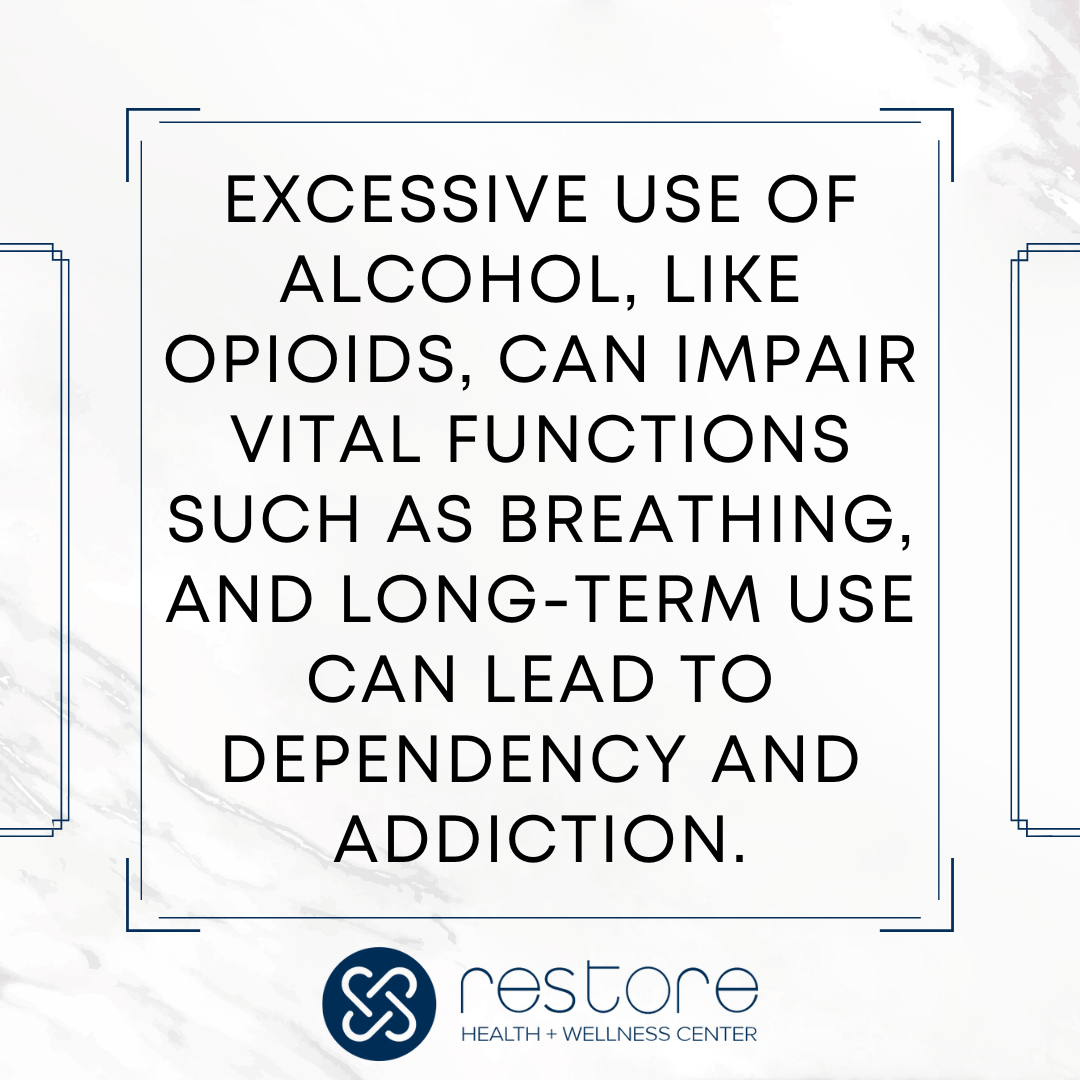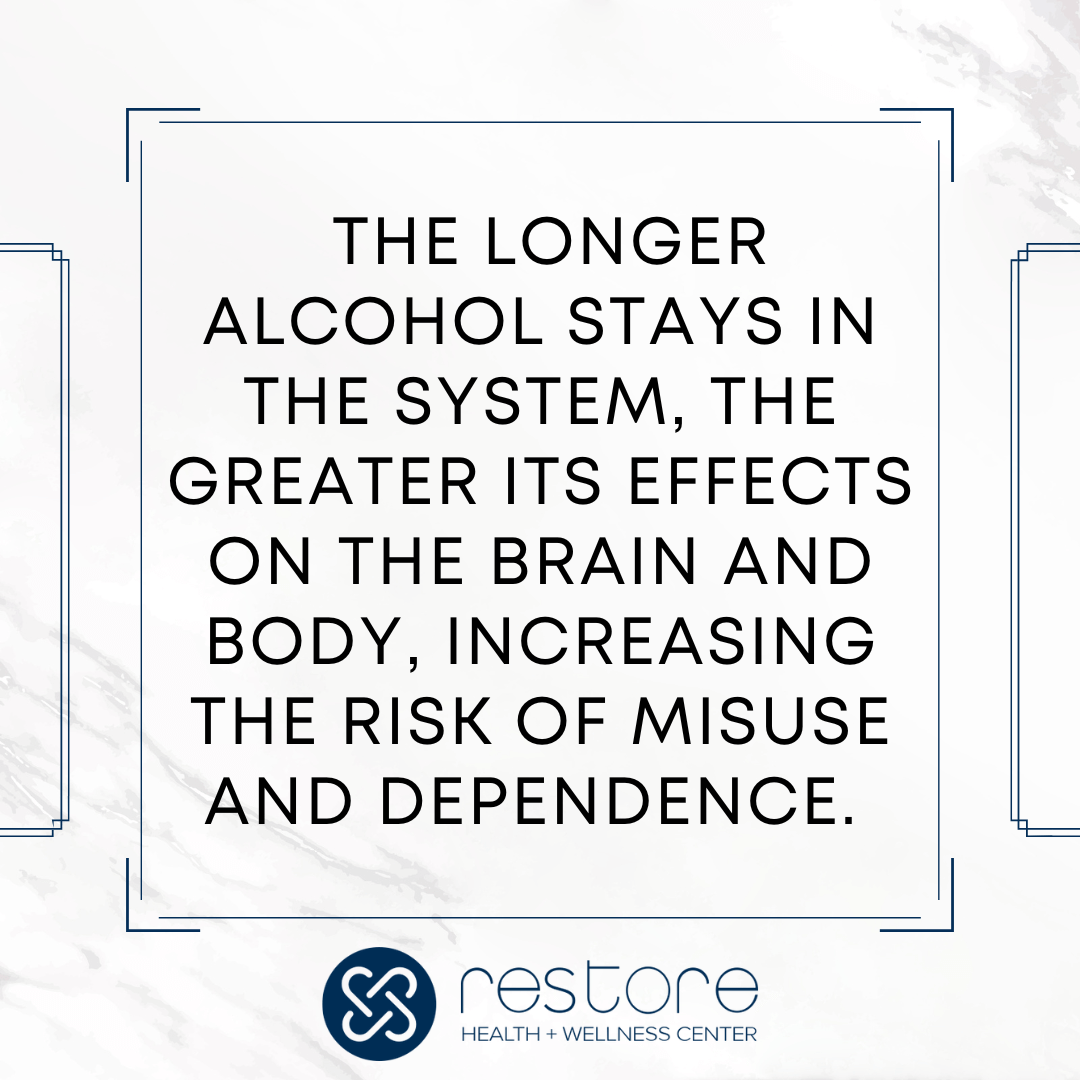
We often hear about the dangers of drugs, but how about alcohol? Society often normalizes drinking, celebrating it as a part of culture, tradition, and social life. Yet, when we take a closer look, alcohol’s effects on the brain and body are strikingly similar to those of other drugs.
This raises an important question: if alcohol alters our mental state and has the potential for addiction, is alcohol considered a drug that should be treated with the same caution as substances we label as harmful?
Let’s dive deeper behind alcohol’s impact to uncover why it deserves the same critical consideration as other drugs.

Why Alcohol is Classified as a Drug
A drug is defined as any substance that alters the way the mind or body functions. By this definition, alcohol qualifies as a drug because it is a central nervous system depressant, meaning it slows down brain activity.
When consumed, alcohol affects neurotransmitters in the brain, leading to effects like relaxation, lowered inhibitions, and slowed reaction times.
Alcohol’s impact is similar to other depressants such as benzodiazepines and opioids. All these substances work by depressing the central nervous system, which can result in feelings of calmness or sedation.
Like benzodiazepines, alcohol enhances the effects of GABA gamma-aminobutyric acid, a neurotransmitter that slows down brain activity, leading to a sense of relaxation. Similarly, excessive use of alcohol, like opioids, can impair vital functions such as breathing, and long-term use can lead to dependency and addiction.
These parallels highlight that while alcohol may be socially accepted, its effects and risks are comparable to other substances commonly recognized as drugs.

How Alcohol Affects the Brain and Body
What is alcohol, and how does it influence the brain and body? Alcohol is a central nervous system depressant that primarily impacts the brain through its effects on neurotransmitters—the chemical messengers that regulate various functions.
One of the key neurotransmitters affected is GABA (gamma-aminobutyric acid), which inhibits brain activity and contributes to feelings of relaxation. At the same time, alcohol suppresses glutamate, a neurotransmitter that increases brain activity and energy levels.
This combination slows down the brain, impairing mood regulation, impulse control, and coordination.
In the short term, drinking alcohol often leads to effects like relaxation, reduced inhibitions, and impaired motor skills. These changes are why people may feel more social or less restrained after a drink.
However, the long-term consequences can be far more serious. Chronic alcohol use can damage the brain’s ability to create and store memories, leading to issues such as memory loss or blackouts. Over time, dependency may develop as the brain adapts to the constant presence of alcohol, requiring more of it to achieve the same effects.
Beyond the brain, alcohol affects the body’s organs, particularly the liver, which is tasked with metabolizing it. Prolonged heavy drinking can lead to liver diseases like cirrhosis, as well as damage to the heart, digestive system, and nervous system.
These widespread impacts underscore the serious risks associated with alcohol, particularly when consumed in excess.

The Potential for Dependence and Addiction
Is alcohol considered a drug that can lead to dependence and addiction? The answer lies in how alcohol affects the brain and body. Like other substances, alcohol has the potential to cause physical dependence.
Frequent or heavy consumption leads the brain to adapt to the presence of alcohol, reducing its natural production of certain chemicals. This creates a cycle where the body begins to rely on alcohol to function normally. Over time, this dependence can develop into addiction, where individuals experience strong cravings and struggle to stop drinking despite negative consequences.
Several risk factors can increase someone’s susceptibility to alcohol use disorder. Genetics play a significant role, as a family history of addiction raises the likelihood of developing similar issues.
Environmental influences, such as being exposed to heavy drinking or experiencing high levels of stress, also contribute. Additionally, individuals with mental health conditions like anxiety or depression may use alcohol as a coping mechanism, further heightening their risk.
By understanding these factors and recognizing alcohol’s addictive properties, it becomes clear why it should be treated with the same caution as other substances commonly labeled as drugs. Identifying early warning signs can be key to preventing the progression of alcohol use disorder.
Why Understanding Alcohol as a Drug is Important
Is alcohol considered a drug? Yes. That’s why it’s important to make informed decisions about drinking and recognize signs of misuse or dependence. When we view alcohol through this lens, we become more aware of its potential risks, such as its ability to alter mood, impair judgment, and create physical dependence over time.
Alcohol’s half-life, or the time it takes for the body to eliminate half of the alcohol consumed, varies depending on factors like body weight and metabolism. However, the longer alcohol stays in the system, the greater its effects on the brain and body, increasing the risk of misuse and dependence.
Seeing alcohol as a drug helps to break down the normalization of excessive drinking, making it easier to acknowledge when drinking habits cross into dangerous territory.
Knowing the potential dangers of alcohol can make us better equipped to identify early warning signs of alcohol misuse, such as frequent cravings, difficulty controlling consumption, or continued drinking despite negative consequences. It also enables us to address the issue before it becomes more serious.
If you or someone you know may be struggling with alcohol use, it’s important to seek support. Whether through counseling, support groups, or medical professionals, help is available, and taking that first step toward recovery can lead to a healthier, more fulfilling life.

Conclusion
In summary, alcohol is indeed considered a drug due to its effects on the brain and body, similar to other substances that alter mood, impair judgment, and can lead to physical dependence.
Understanding alcohol’s potential for misuse and addiction, as well as recognizing its risks helps us make informed decisions about drinking.
If you or someone you know is struggling with alcohol use, don’t hesitate to reach out for help. Restore Center is here to support you in your recovery. Contact us now.












